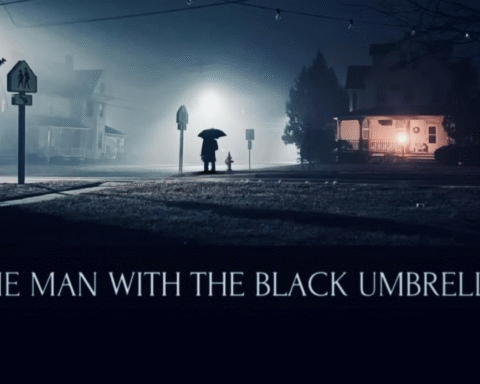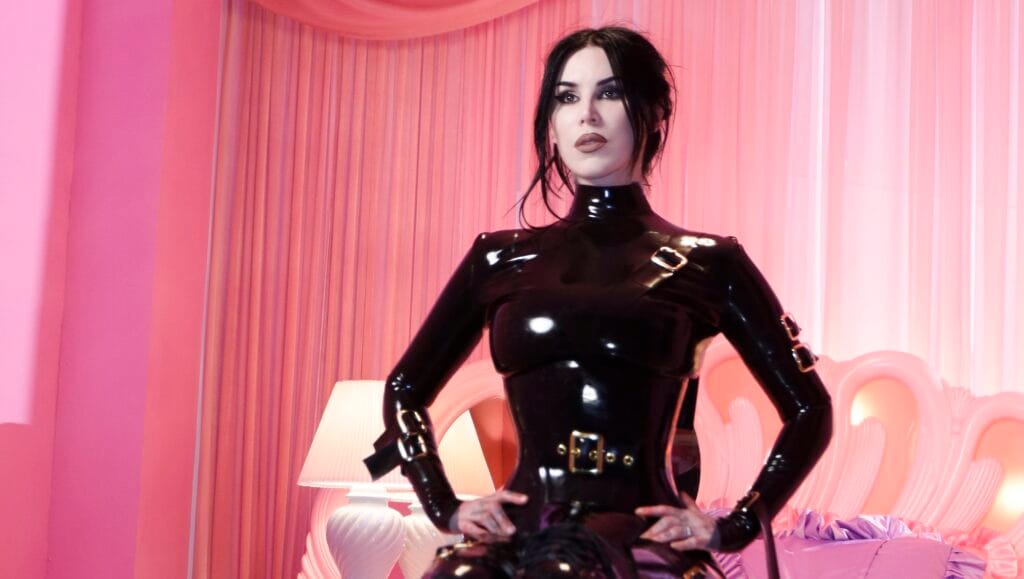Illuminati Hotties, the brainchild of producer-engineer-turned-indie-pop star Sarah Tudzin, has never been one to shy away from the contradictions and pressures of the music industry. With her third album, Power, released on August 23rd, 2024, Tudzin grapples with a newfound complexity in both her personal and professional life. Having carved a niche in the bustling subculture of Los Angeles’ indie scene, she now faces the disorienting task of balancing success with the intimate struggles that come with being human—marriage, loss, and the merciless drive for perfection. Power captures these paradoxes beautifully, with Tudzin reflecting on life’s privileges and challenges with the unflinching candor and sonic diversity that has made her music so irresistible.
As a “musical Swiss Army knife,” Tudzin shows herself to be as much an artist of contrasts as she is a master of collaboration. Power is an album built on the scaffolding of indie rock, but it often reaches into the familiar pockets of power-pop, shoegaze, and intimate acoustic melodies. With an enviable list of collaborators—Jason McGerr of Death Cab for Cutie, Jay Som’s Melina Duterte, and Ryan Hemsworth, to name a few—Tudzin has amassed a community of artists that bolster the album’s emotional and sonic depth. But beneath the star-studded names, Power remains quintessentially Tudzin: a deeply personal meditation on growth, grief, and the balancing act between ambition and vulnerability.

The album opens with the blistering lead single “Can’t Be Still,” where Tudzin’s breathless admission of her relentless hustle—”I triple-book my Saturdays, but I pretend my program keeps me from freaking out”—carries an air of frantic realism. Here, and throughout the album, Tudzin explores the exhaustion of the creative grind, at times reveling in the chaos, at others seeking refuge in quieter spaces. On tracks like “The L,” she shifts from biting satire to a more introspective confrontation with her obsessive work ethic, acknowledging her pull toward an “all-or-nothing” mentality. This tension, between letting go and holding on too tight, forms the thematic heart of Power.
In contrast to her previous album, Let Me Do One More, which reveled in spiky power-pop and irreverent humor, Power moves in a more subdued, introspective direction. The album’s slower moments—like the tender ballad “Throw (Life Raft)” and the confessional “Sleeping In”—showcase a matured, gentler approach to songwriting. These songs are defined by their emotional clarity and an undeniable warmth, often leaning on lush harmonies and acoustic arrangements reminiscent of early Tegan and Sara. The effect is both soothing and deeply human, as Tudzin navigates life’s messier realities without losing her signature knack for crafting earworms.
However, Power is also colored by a darker undercurrent: the loss of Tudzin’s mother to cancer. Though Tudzin herself has stated that Power is not a grief album per se, the weight of mourning is ever-present, haunting tracks like “Rot” and the album’s closer “Everything Changes.” Rather than succumb to sentimentality, Tudzin’s exploration of grief is raw and nuanced, her lyrics painting a portrait of someone grappling with the slow, ever-unfolding process of healing. “I want to feel your power,” she sings on the title track, a haunting plea directed toward her mother. The song’s minimalist production—anchored by a drum machine and muted piano—creates a soft, sunrise-like glow, a sonic metaphor for the tentative, fragile hope that accompanies deep loss.

Yet for all its emotional weight, Power is not without its moments of levity and self-awareness. Tracks like “Didn’t,” featuring Cavetown, and “What’s the Fuzz,” with Speedy Ortiz’s Sadie Dupuis, infuse the album with playful energy and wry humor. Here, Tudzin turns her focus outward, taking aim at the absurdities of modern life and the existential noise that accompanies it. These songs, much like the album as a whole, show Tudzin’s ability to toggle effortlessly between intimacy and irony, the personal and the universal.
Ultimately, Power feels like a deeply transitional album, the sound of an artist working through the complexities of adulthood, marriage, success, and loss. There’s a quiet power in the way Tudzin lays bare her anxieties and aspirations, especially in moments where she pulls back the curtain on her vulnerabilities. Whether she’s reflecting on her relationship with her wife—playfully acknowledging the shared joy of “sleeping in”—or confronting the more existential question of how to navigate life after loss, Tudzin’s voice is unpretentious, authentic, and profoundly relatable.
In Power, Sarah Tudzin doesn’t offer easy answers or neatly tied conclusions. Instead, she allows herself the space to explore life’s contradictions—the balance between pushing forward and letting go, between grief and hope. This refusal to oversimplify or sanitize her experience is what makes Power not just a remarkable album, but a significant artistic statement. As Tudzin continues to grow, both as an artist and as a human, it’s clear that her real power lies in her willingness to try—again and again, in the face of life’s toughest challenges.









